Drawing a blank: Did Germany pay for dearth of poachers in prime at Euro 2016?
Published: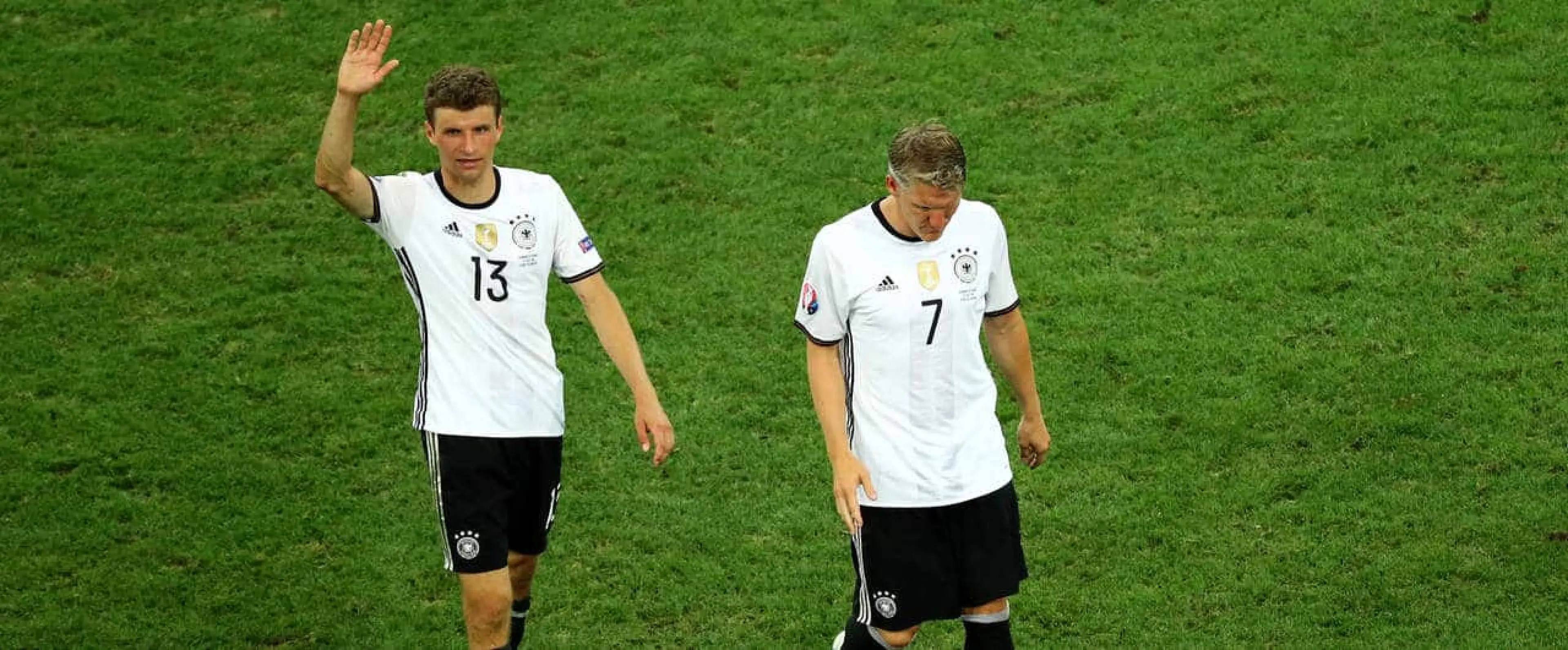
Holly Thackeray | July 6, 2016
Diemannschaft dangermen dearth a worry ahead of World Cup?
As the dust settles on Germany’s fall to France in the Euro 2016 semi-finals, Die Mannschaft fans could be forgiven for questioning just why their players are on the plane home, instead of preparing to play Portugal in the showpiece showdown for the crown on Sunday.
But, there will now be no chance for this German vintage to follow a World Cup with a European Championship. It was instead ‘La Marseillaise’ that rang out in the stadium, with vibrant home fans celebrating success by pinching the Viking clap of their other vanquished opponents Iceland.

Yet for long segments of a hard-fought last four fray against the French, Joachim Low’s lads dominated the middle of the park, pegging their opponents in their own half and forcing them to repel wave after wave of probing passes in the final third.
Though, as several battles have brutally shown in this excellent tournament of outsiders, possession has not always paid off, but ruthless opportunism instead. France had that up front via Antoine Griezmann’s deadly double, but the usually cold-blooded world champions could not convert when it counted.
A lot of course is down to luck, with Bayern Munich utility young-gun Joshua Kimmich another German to fall foul of the woodwork this summer, Hugo Lloris alert in net to keep Thomas Muller silent with a superb string of saves, and barely blooded Samuel Umtiti strong in the tackle at the edge of the area.
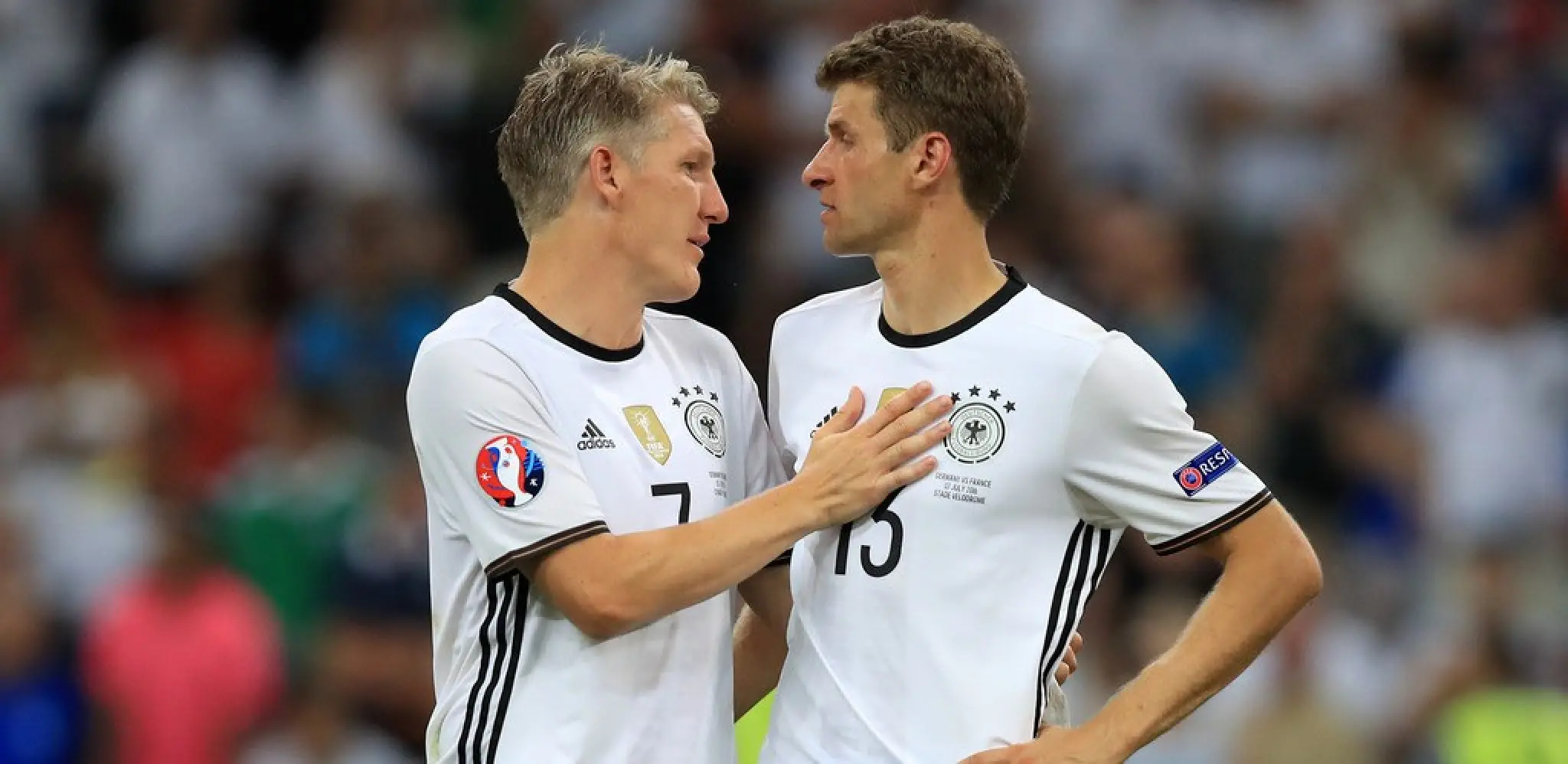
For all the recriminations that may follow, there was little Germany did wrong, but the signs had been there all tournament and even before – though many expected the winning machine to march on regardless.
A defence that leaked only one goal in normal time until Griezmann’s gobbling spree in the semis, a midfield that repeatedly passed their conquerors into submission – makes it clear Die Mannschaft were only lacking luck and lethal finishing.
Attention will now turn to defending the World Cup, which Die Mannschaft are rated 5/1 with Coral to do, but first there is qualifying to be done. With their air of invincibility now gone, who can Germany turn to up top?
Can Gomez go another round?
For world champions, drawing blanks in two of five outings at this major tournament is certainly a blot on the copybook.
As a nation, be it West Germany or reunified, Die Mannschaft is renowned for producing some of the most potent marksmen in European football history – with hitmen to give many of the continent’s defenders nightmares.
Jurgen Klinsmann, Gerd Muller, Miroslav Klose, Uwe Seeler, Oliver Bierhoff and Rudi Voller are just a handful from the illustrious role call. Yet it is a stretch to see where the next out-and-out net threat will come from.
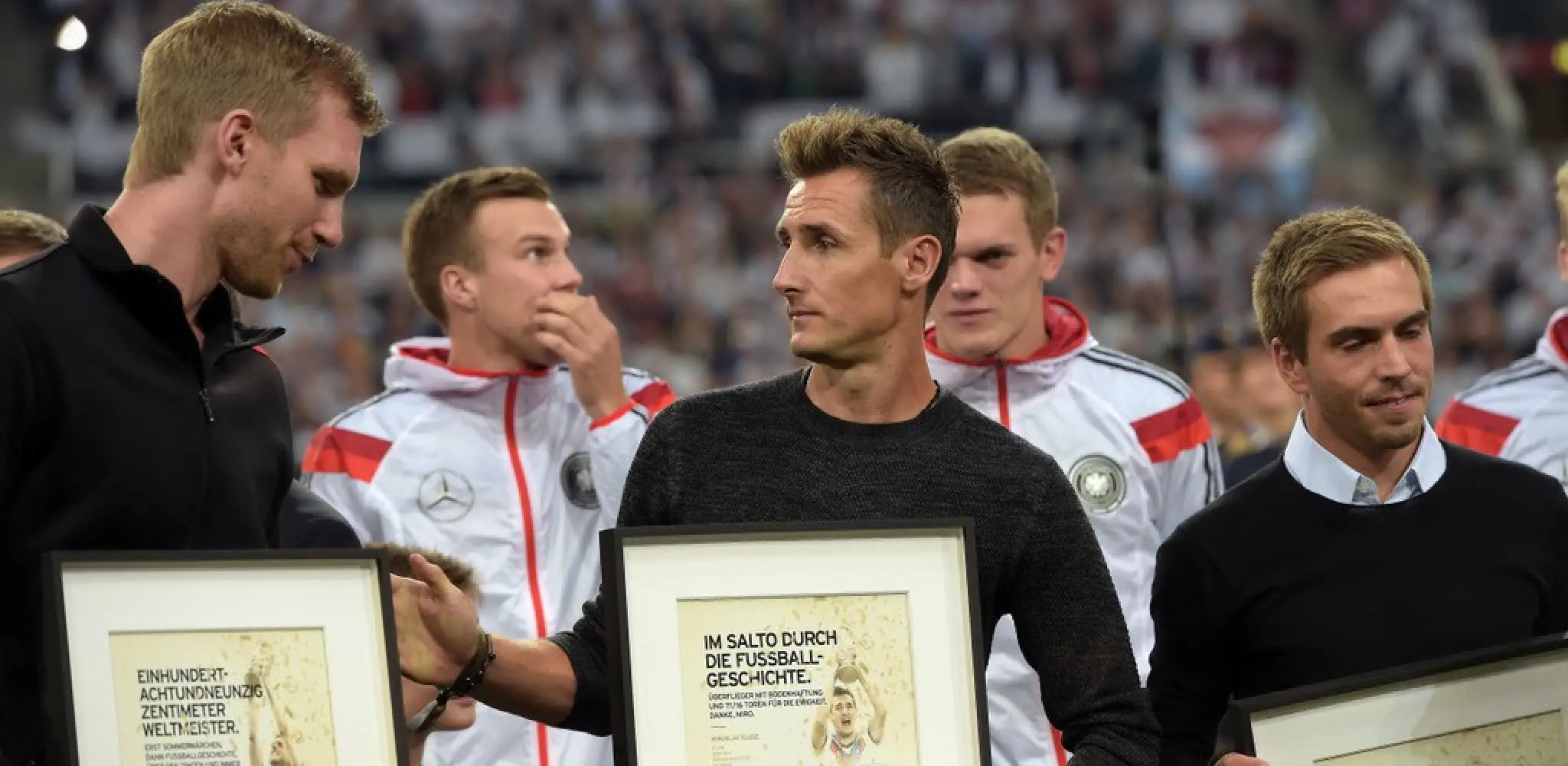
Adaptable Lukas Podolski is the only player from Low’s current crop that features among those lauded nostalgic names in Germany’s top 10 all-time scorer list, yet he got on the pitch just once in France, with his days in the international set-up surely numbered now after this potential last hurrah.
Will it be the same for main marksman Mario Gomez? The goal machine has been left out in the cold by Low before, but forced his way back in after an excellent return on loan in Turkey.
Without the 30-year-old forward as a focal point, Die Mannschaft looked rather impotent in their opening two Euro games, but Gomez provided the goals in following games against Northern Ireland and Slovakia, turning back the clock.
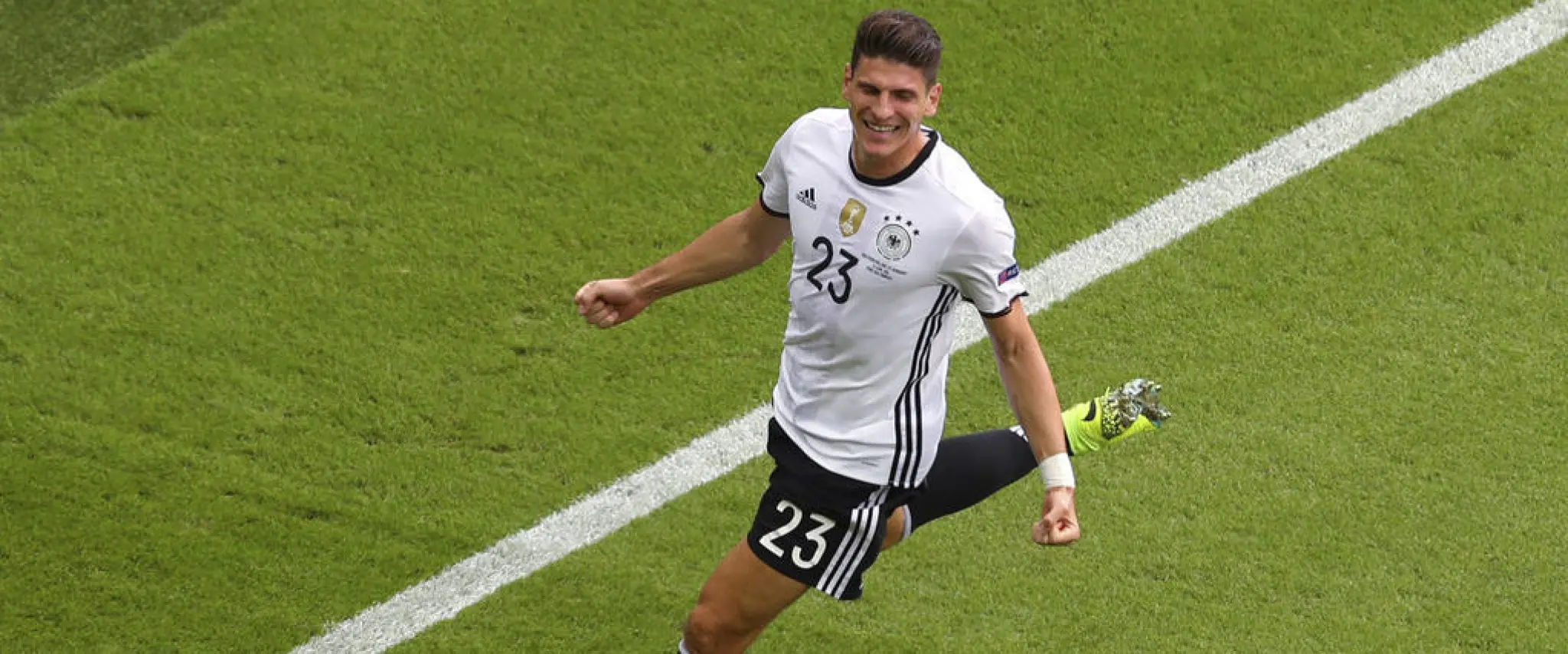
The Fiorentina-owned frontman’s injury concerns, as highlighted when he hobbled off against Italy, surely count against him, as well as age, when building for the future. Though, stats of 29 strikes in 68 caps and four in seven across 2016 for his country are hard to argue against if he can be relied upon.
Then, of course, there is the one and only Muller, an incredibly potent threat at club level for Bayern and brilliant as leading man with a 2010 World Cup Golden Boot, and the Silver Boot in 2014.
Yet a traditional centre forward the roaming attacker is not, though he can play there effectively. When it works Germany are a force to reckoned with, but when Muller is off-colour as in France, when he failed to find the target, Low has problems.
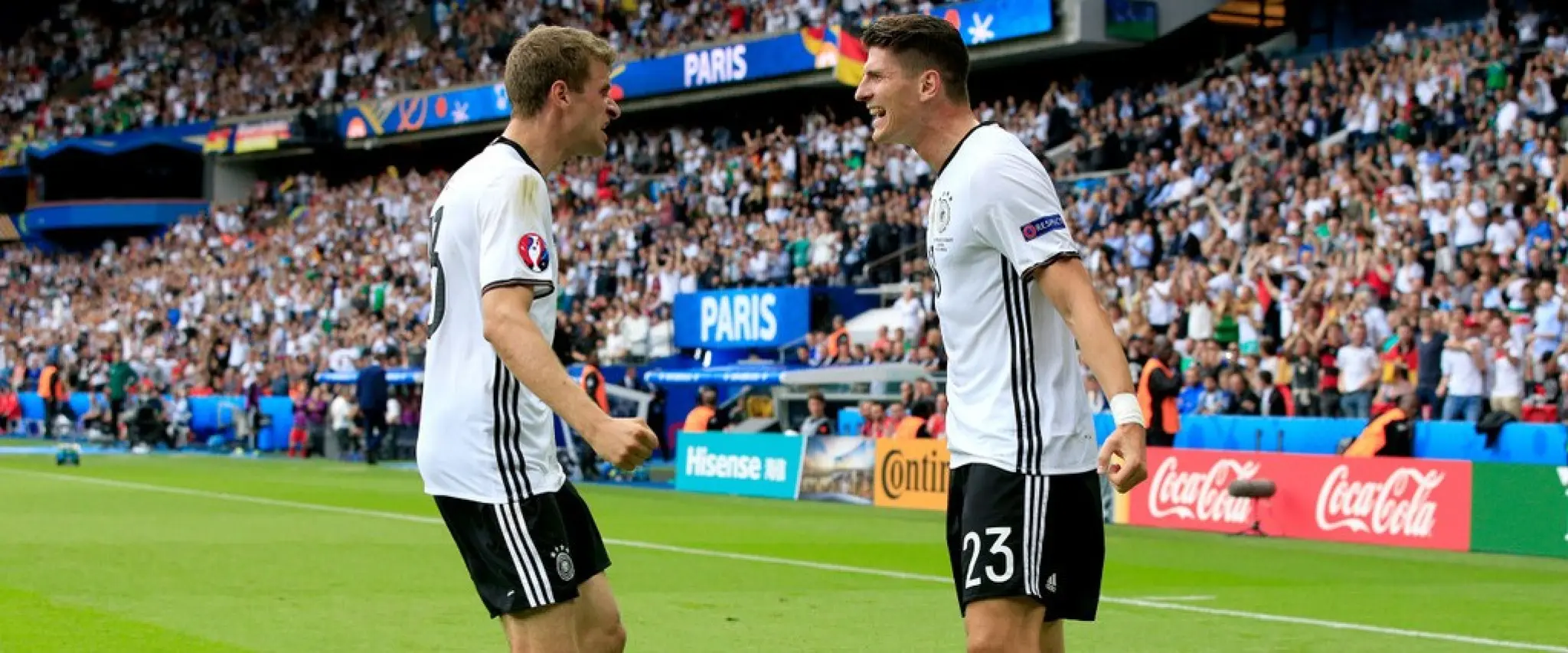
No more shoehorning of strikers
Coach Low must have known he was light on traditional strikers headed to the tournament, something a 3-1 rout of Slovakia could not disguise, especially as those same opponents sunk them in a friendly before the France finals.
Usually, the sublime roster of playmakers and attacking midfielders in Toni Kroos, Mesut Ozil, Mario Gotze, Julian Draxler, Leroy Sane and Andre Schurrle more than makes up for the lack of a true poacher in the German tradition. Yet, on occasions such as, this the dearth of goal-getters is glaring.
Shoehorning Muller or Gotze, with even past talk of converting Draxler, into the leading man role does not always work.
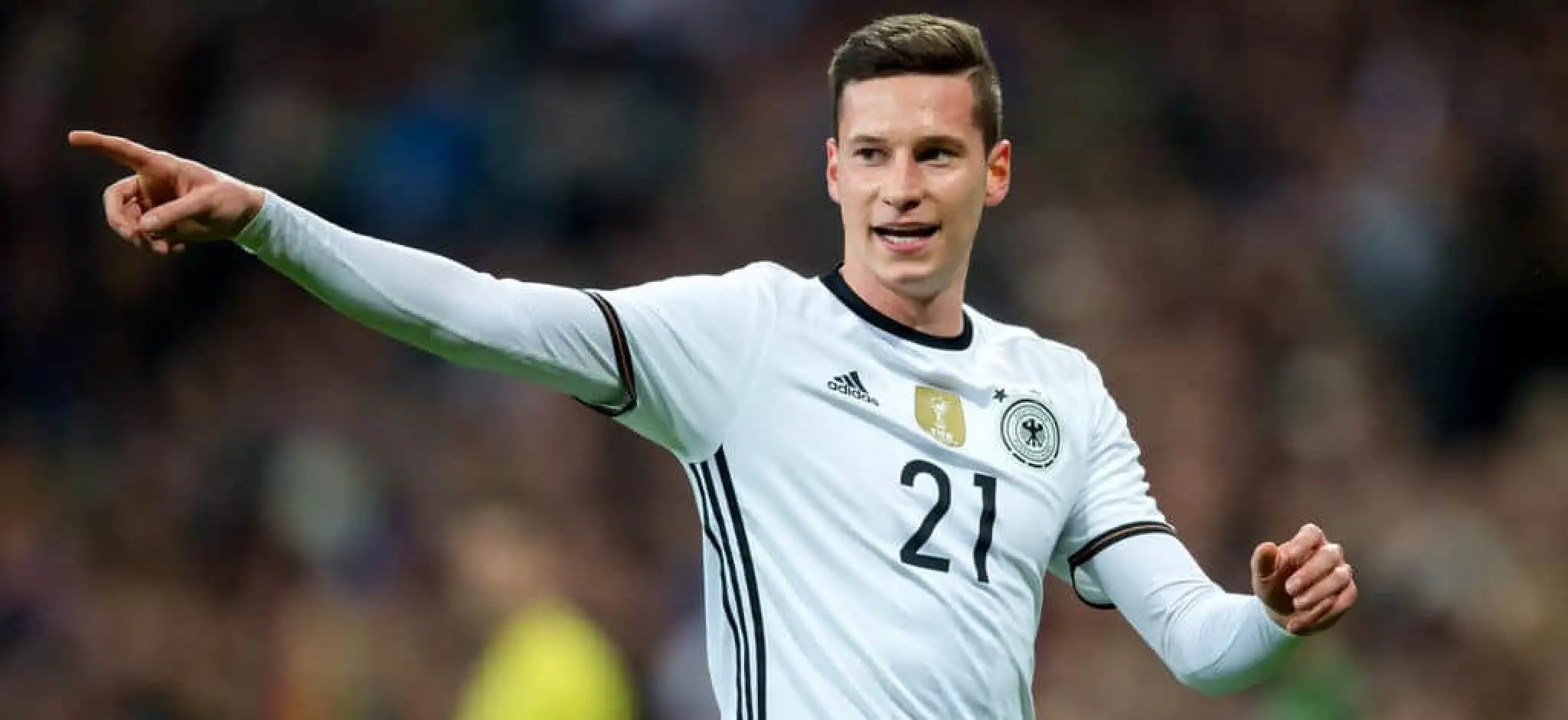
So where is the next Klose? Having been lauded for their conveyor belt of ball-playing defenders and production line of pass-masters, is German football lacking in striker schooling?
There are plenty of exciting youngsters waiting in the wings such as Sane and Julian Brandt, but centre forwards they are not despite their goal threat.
Having excellently adaptable all-rounders in attack is essential for Low’s fluid football, and Germany were even able to leave Bayer Leverkusen’s in-form Karim Bellarabi and injured Marco Reus at home without complaint, but sometimes a specialist centre forward is required.
Is there a sensation in the next generation?
Now 28-year-old Max Kruse’s off-pitch controversy, seeming lack of a relationship with Low and faltering form since a switch to Wolfsburg seems to have put paid to his international aspirations.
This leaves Leverkusen’s Kevin Volland (23) perhaps in the frame for a look-over by Low. Though in six senior caps he has yet to find the net. Again though, Volland is usually preferred on the flanks, but in a flash of potential five of his eight goal haul for Hoffenheim last term did come from the centre forward position.
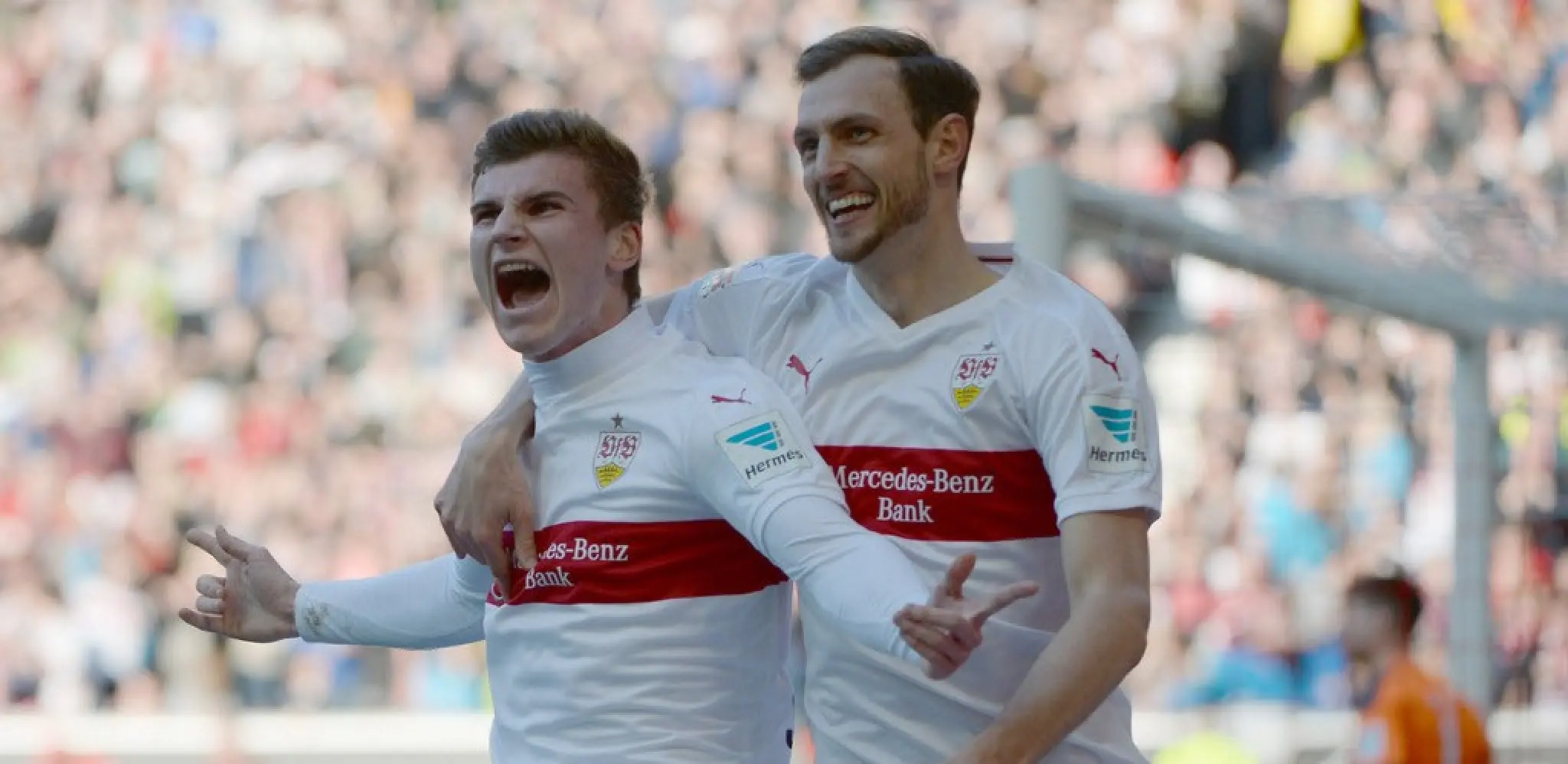
Most hyped young hitmen Timo Werner of Stuttgart (20) and Schalke-owned Donis Avdijaj (19) still have a long way to go, with plenty of promise and scope, but do not yet look like regular reliable poachers, with just 11 goals across all competitions between them last season.
Davie Selke (21) could prove a less hyped a surprise after his 10 goals in the German second-tier helped Red Bull Leipzig to Bundesliga promotion, but the former UEFA European Under-19 Championship Golden Boot winner still has plenty to prove if he is to live up to idol Gomez.
There may be no heir apparent, but Germany would do well to test a few options ahead of their World Cup defence, if they are to avoid a repeat of this Euro disappointment in Russia.
Related










